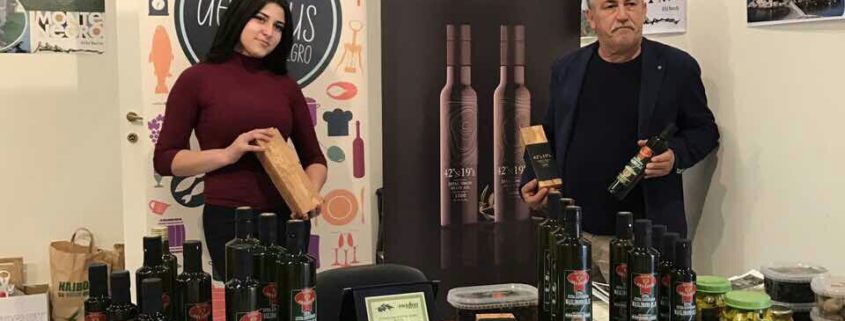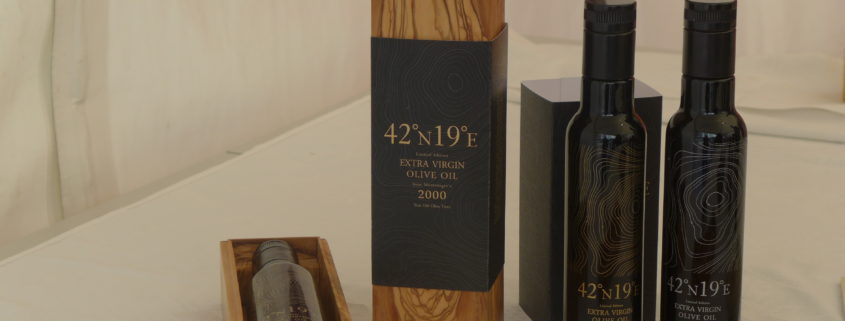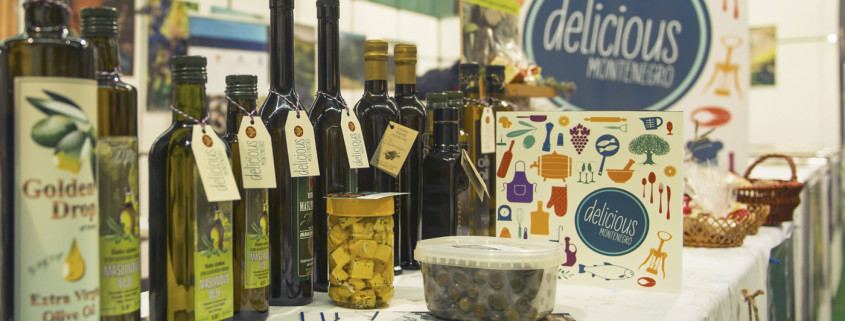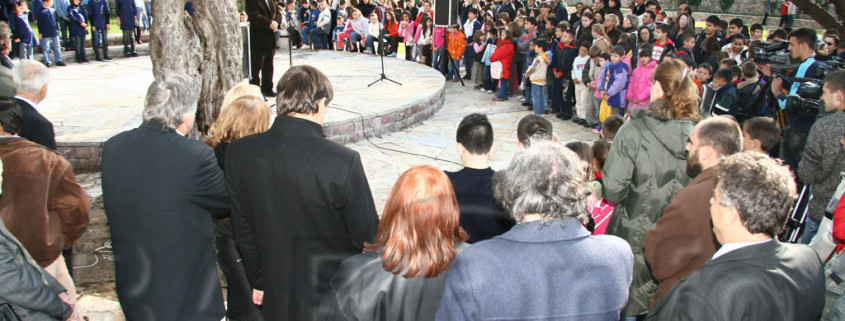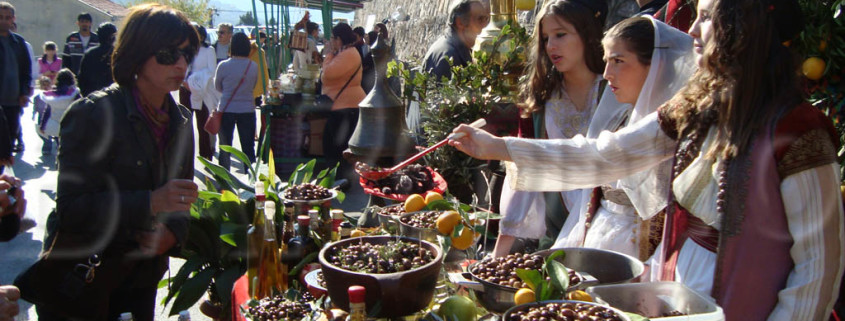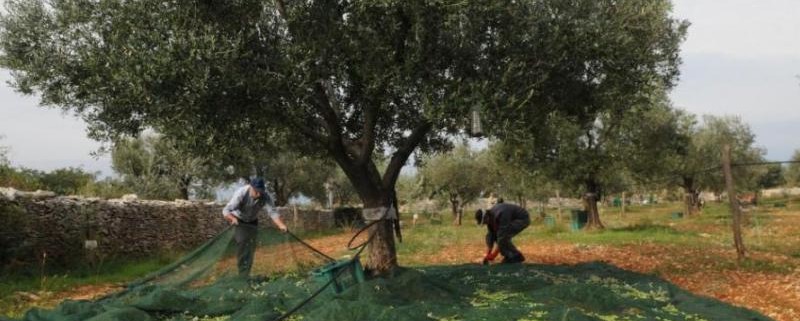When Prince Charles and his wife Camilla visited Montenegro in March 2016, they attended a cultural heritage festival in Cetinje, the country’s old royal capital, where agriculture minister Petar Ivanovic discussed the importance of the sustainability of agricultural development in Montenegro. During the exhibition, a local olive growers cluster, called Bar & Ulcinj, presented the first bottles of virgin olive oil branded as 42°N 19°E to them.
This delicate olive oil was produced from some of the world’s oldest olive trees, known as the žutica species, which are indigenous in southern Montenegro. The oil is dubbed “yellow yield” because of its beautiful golden colour, and has an exceptional balance of fruitiness and piquancy. 42°N 19°E – a name indicating the geographical location where the oil is produced – pays homage to the ancient žutica olive trees, as well as the values and traditions of the local inhabitants.
Bar and Ulcinj are two small towns in this southern region. It is said that, for two thousand years, people in these coastal towns have been producing olive oil from these indigenous trees, which used to blanket the landscape of this area. Today, some 10,000 ancient žutica olive trees have survived.
Although Montenegro boasts one of the world’s finest olive oils, namely the “yellow yield”, the country’s olive oil products haven’t been enjoying the prestige its Mediterranean counterparts have received. The primary reason is its relatively exorbitant price.
Olive oils produced in neighbouring countries, such as Croatia, Greece, Italy and Spain, are sold at a much lower price, both on Montenegro’s domestic market and the international market. To get a sense of the scenario, the average price for locally produced extra virgin olive oil is EUR 12 per bottle (0.75l), and the imported Divella extra virgin olive oil, produced in Italy, sells in the local supermarket at around EUR 8 per bottle. Even the most distinctive Spanish olive oil brand, Castillo d’Canena, sells its extra virgin Arbequina olive oil in Montenegro at only at EUR 13 per bottle.
In addition to the price disadvantage, the local producers largely lack the access to market. The majority of them sell the products in their own houses, advertised with rudimentary signs, and only a very small amount of them have the access through official sales channels to restaurants, hotels and supermarkets.
Facing fierce competition from the foreign brands, which are often owned by big companies, the small-scale olive oil producers in Montenegro hardly stand any chance of getting a foothold in this trade. The sale of small quantities means the profit margin is narrow, so often the local producers remain dependent on state subsidies.
But there is one strategy for small producers to compete against established corporates, and that is to form clusters; and there is one way to take advantage of that exquisite “smallness”, and that is to tap into the high-end niche market.
Montenegro’s small-scale olive oil producers are following this strategy. Several clusters have been formed, one of them being the Bar & Ulcinj cluster. Highlighting the unique terroir of this region and the indigenous olive trees, the cluster members of Bar & Ulcinj jointly developed the 42°N 19°E olive oil brand.
Cluster producers and external experts have worked together on designs of bottles and packaging, and explored various cooperation opportunities with local artists and carpenters. Producers have also received training on marketing, in order to make their products more attractive and increase the sales.
A cluster marketing plan was drawn up, offering potential for the development of new branding concepts and enhancing linkages with tourism. In this context, two touristic routes, called “olive trails”, were developed, linking to the important tourist assets of the old towns of Bar and Ulcinj.
These efforts were all part of an European Union-funded project implemented by the United Nations Industrial Development Organization (UNIDO), in partnership with the United Nations Development Programme (UNDP) and the Ministry of Economy of Montenegro. It aims to enhance the competitiveness of the small-scale olive oil producers on the local and regional markets.
“Through the project process, the cluster members were exposed to the entire product development cycle and benefited from specific industrial design know-how, from which they will be able to draw in their future endeavours,” said UNIDO Project Manager, Fabio Russo.
Despite the old žutica olive trees being put under state protection, incidences of illegal logging continue to occur regularly. To enhance the owners’ awareness of the potential that these trees offer, the project helped conduct scientific research that highlighted the history of these trees. Using sophisticated techniques, scientists from the Faculty of Forestry at the University of Istanbul tested and identified the exact ages of 50 olive trees sampled from Bar and Ulcinj. Each owner received a certificate indicating the great age of their trees, which adds a great asset to their products. The project also approached UNESCO to include these olive orchards on the World Heritage List. This effort is ongoing.
“We are cultivating some of the oldest olive trees in the world. The research indicated that one of my trees is more than 2,240 years old! I am so proud of it. We are also proud of our products. 42°N 19°E oil celebrates the high quality of our products and the tradition surrounding our ancient olive trees,” said one cluster member Bilal Kraja, whose family has been producing high-quality olive oil for years.
Like many small producers in this region, the Kraja family believes in upholding the tradition and the highest standard of quality in their production. Recognizing the profound significance of the trees in his orchard, Kraja carefully preserves them, ensuring that no damage befalls any of them.
To encourage cluster producers to enhance collaboration between themselves, as well as across sectors, the project also helped organize “Days of wine and olive oil” events in several local shopping malls.
Some members reached out to a number of cosmetics producers and convinced them to use the locally produced olive oil as a main ingredient. A female entrepreneur who owns a soap company called Ella said that this was extremely beneficial for her: “It was an excellent idea to use natural, local ingredients in my cosmetic products. I had good sales from the new products and with the extra income generated, I can reinvest in further product development.”
By ZHONG Xingfei

